7 Habits of Highly Effective People
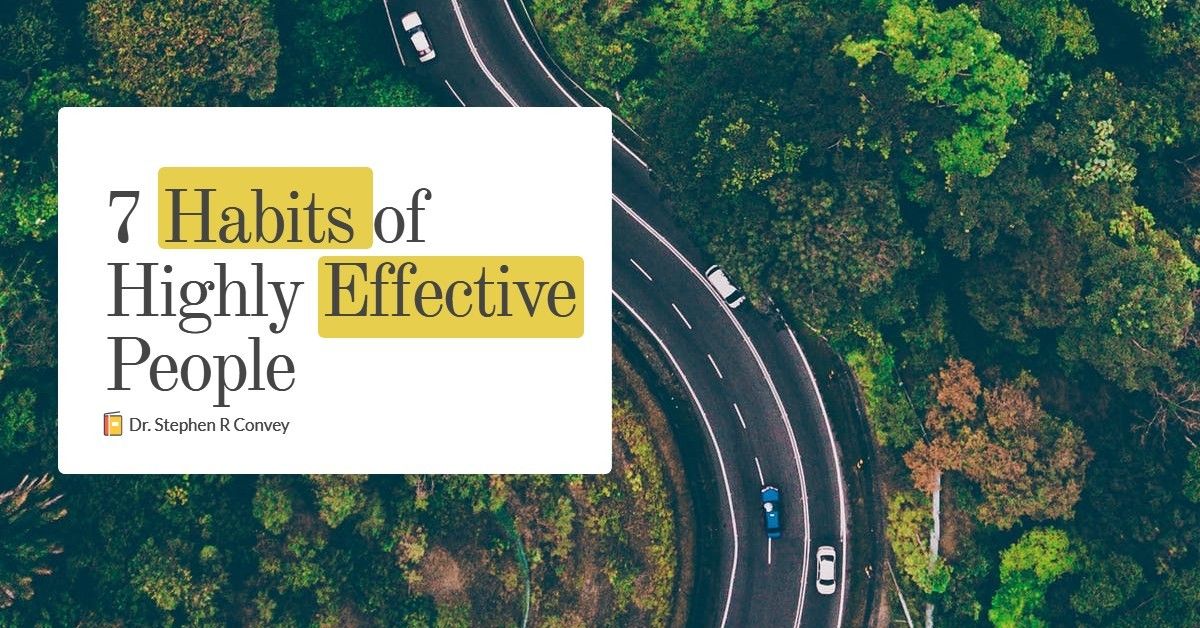
About the Author:

- Dr. Covey was an American author, educator, businessman and keynote speaker.
- He was one of, times magazines 25 most influential American.
- Born in Salt Lake City, Utah, on October 24, 1932.
- He received an MBA from Harvard and a doctorate from Brigham Young University.
- A professor of organizational behavior and business management in BYU.
- His book “7 Habits of Highly Effective People” was named as #1 most influential book of 20th century.
- His some other books are “the 8th Habit”, “The Leader in Me”, “one Child at a Time” etc.
Introduction
- “The Seven Habits of Highly Effective People” by Stephen R. Covey is still on the bestseller lists having sales of some 20 million copies.
- Book explains how many individuals who have achieved outward success have struggled developing personal effectiveness and growing a healthy relationship with others
- We should see the world with some other’s perception- Put in other’s shoes to understand better and improve ourselves
- To achieve success on a primary level, we must first understand our basic behaviour and desires.
The Inside-Out Approach
- The way we see things is the source of the way we think and the way we act.”
- This leads to our behaviour and attitudes
- We simply can not maintain wholeness if we see and talk differently.
- Paradigm Shift: Our paradigm affects us how we interact with others, which, in turn, results, how they interact with us back!
- First examine your own character and behaviour
- hen look out others
- Example: Story of a manager who took management training seminars
Habits
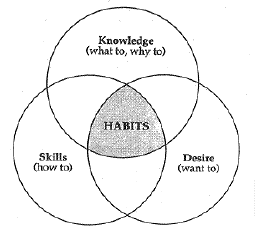
Habit is an intersection of knowledge, skill and desire
1. Be Proactive
Proactive v/s Reactive
- Proactive comes from inner impulse inside yourself and your own desires
- Reactive comes from your outer circumstances
Circle of Concern & Circle of Influence
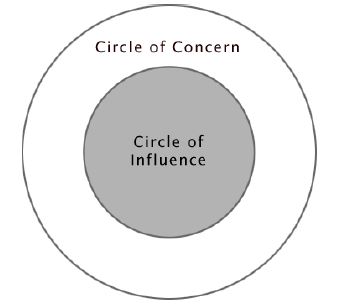
- Our health, family problems, national debt, India VS Pakistan. Fall under the circle of concern
- Circle of influence, those areas inside of the circle of concerns which we can actually effect something to our Our health, daily routine, heavyweight
Being Proactive means you can work on your Circle of Influence, where you actually can do something.
In articleCovey argued that through being Proactive, you can also increase your Circle of influence !
Stephen Covey
2. Begin with the End in Mind
- Based on the principle of personal leadership
- Means “You decide what you want !” We need to develop a vision, a clear picture of what you want to achieve, how you want be remembered, what kind of person you want people to be remembered about you.
- How to do it:
- Ask yourself what you like the most.
- Identify your centre – source of motivation and guidance
- Identify your BHAG
- Example: Funeral Example, Worst case.
3. First things First
- Do things which have a significant positive impact on your life.
- Prioritize things in order from important to not so important and urgent to non-urgent.
- Time management.
- Pareto’s 80-20 rule.
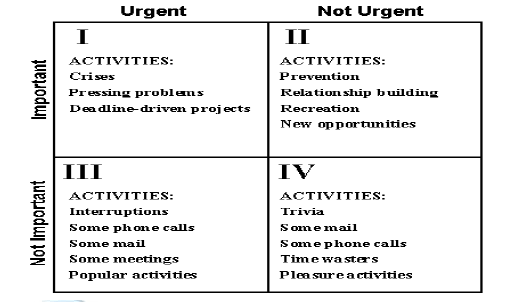
4. Think Win- Win
The Four Paradigm of Human Nature:
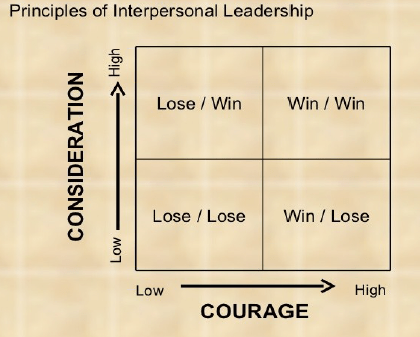
Win-Win
“We both win“. Agreements or solutions are mutually beneficial and satisfying to both parties
Win-Lose
“If I win, you lose.” Win-Lose parties are prone to use position, power, credentials, and personality to get their way.
Lose-Win
“I lose, you win.” . Both the parties are quick to please and appease, and seek strength from popularity or acceptance.
Lose-Lose
“Both people lose“. When two Win-Lose people get together – that is, when two determined, stubborn, ego-invested individuals interact – the result will be Lose-Lose.
In article“To be successful you should learn to leverage the strengths of others. To do this effectively involves being able to find Win/Win deals” “Win-Win or No Deal”
Stephen Convey
5. Seek First to Understand, Then To Be Understood
“Most People do not listen with the intent to understand; they listen with intent to reply!”
Stephen Convey
- You can’t find a “Win-Win” situation if you don’t listen to people!
- Your focus should be on listening rather than replying.
- For effective listening, You should fully utilize Your hearing senses!
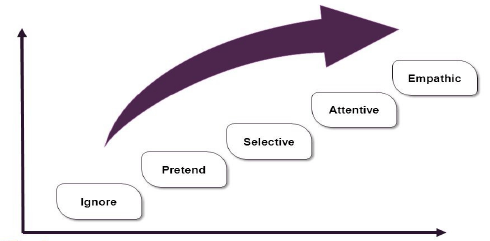
6. Synergies
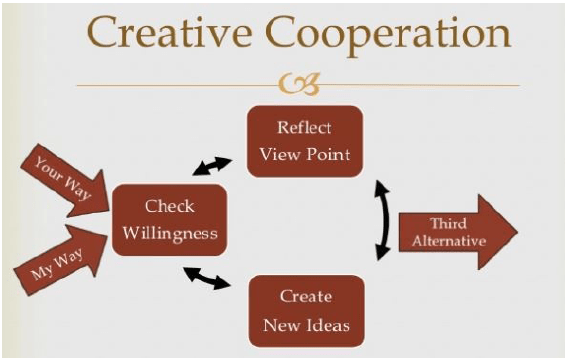
The Whole is always greater than the sum of its parts!
How can we introduce synergy:
- Start with habit 4 – Win-Win
- Seek to understand first
- Pool our desires
- Mutual problem solving
- Coming up with the 3rd alternative which is due to the synergy between the two parties.
“ A fruit salad is delicious precisely because each fruit maintains its own flavour”
Stephen Convey
7. Sharpen The saw
- This habit focuses on “self-renewal”.
- Just as a machine, will wear out quickly if not properly maintained, the same is true for our own personal productivity. we must take care of yourself.
The Four Dimensions of Nature:
- Physical: Exercise regularly to increase capacity, adapt, and enjoy .
- Mental: Reading, Visualizing, Planning, Writing .
- Social/Emotional: interaction, Socialization, Synergy, Intrinsic Society .
- Spiritual: Religious values, Commitment, Study & Meditation.

“A mind needs books as a sword needs whetstone if it is to keep its edge!”
Tyrion Lannister
Conclusion
Because of the philosophical nature of the book and the very wide focus, 7 Habits is going to appeal in vastly different ways to different people.
There isn’t a universal take-home message here; it really depends on the reality of your own life and where you’re at.
Even re-reading it again at a different point in life is going to result in a vastly different interpretation of the materials within the covers.
Source: https://www.slideshare.net/LokeshPrasad5/bookreview-7-habitsofhighlyeffectivepeople-112227273



